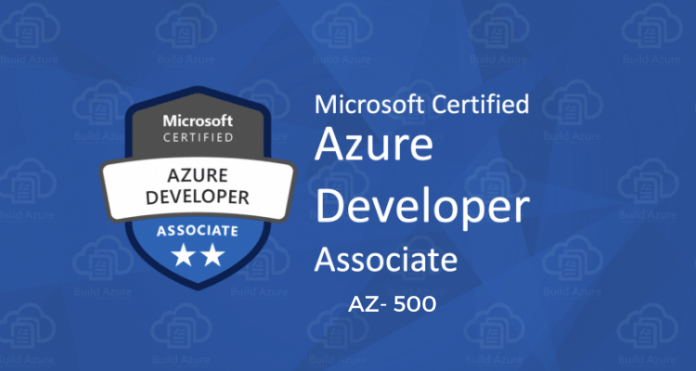
The AZ-500 Microsoft Azure Security Engineer Associate certification exam is an associate-level exam and is mainly focused on the security and compliance features of Azure services. This exam is specifically designed for a Subject Matter Expert (SME), who is responsible for implementing and maintaining security controls, providing protection against threats, managing identity and access, protecting data and information, and creating applications in hubris and cloud environments.
You can also take this certification exam if you know about scripting, automation, networking, and virtualization, especially in a cloud environment. The job titles where AZ-500 is of relevance include software engineer, DevOps engineer, data engineer, cloud security engineer, cloud engineer, and manager in information security.
Exam Prerequisites
Before taking the Azure Security Engineer Associate certification exam, make sure you have already cleared the Azure Administrator Associate exam or the Azure Developer Associate exam.
This associate-level exam is relatively harder as it covers multiple topics and practices. Therefore, it is recommended to have a minimum of 1 year of hands-on experience with Azure Cloud Administration and general security practices before you appear for this certification.
Why take the exam?
- It will help you understand security requirements for companies and offer customized solutions.
- You will be able to create automated solutions for threat resolution across several domains.
- It will help you implement security strategies and policy designs.
- You will be able to easily manage the integration of security.
- You will be able to serve as security liaison to examiners, auditors, and assessors.
Exam Pattern
The Azure Security Engineer Associate certification exam is for 3 hours, out of which 30 minutes are reserved for feedback, and it consists of 40-60 questions. To clear this exam, you need at least 70%, and with the right Azure training, you can easily reach that benchmark.
The examination fee is Rs. 4,800, and the certificate is valid for 2 years. You can take this exam at your home or at any Pearson Exam Center. The exam has single-choice questions, multiple-choice questions, one case study with multiple questions, yes or no questions, true or false, and questions with diagrams.
The exam mainly focuses on the following 4 areas:
-
Manage identity and access (30-35%)
This is the main section of the exam. It mostly has scenario-based questions and measures the following skills:
-
Manage Azure Active Directory Identities
Configure security for service principles
Manage Azure Active Directory groups
Manage Azure Active Directory users
Configure password writeback
Configure authentication methods
Transfer Azure subscriptions between Azure Active Directory tenants
-
Configure secure access by using Azure Active Directory
Configure access reviews
Activate and configure Privileged Identity Management (PIM)
Monitor access for Azure Active Directory PIM
Configure Azure Active Directory identity protection
-
Manage application access
Create app registration
Configure app registration permission scopes
Manage app registration permission consent
-
Manage access control
Configure subscription and resource permissions
Configure resource group permissions
Configure custom RBAC roles
Identify the appropriate role
Interpret permissions
Check access
-
Implement Platform Protection (15-20%)
This section deals with the implementation of platform protections and measures the following skills:
-
Implement advanced network security
Secure the connectivity of virtual networks
Configure Network Security Groups (NSGs) and Application Security Groups (ASGs)
Design and configure Azure Firewall
Configure Azure Front Door service
Configure a Web Application Firewall
Configure Azure Bastion
Implement service endpoints
Implement DDoS protection
-
Configure advanced security for compute
Configure endpoint protection
Configure and monitor system updates for virtual machines
Configure authentication for Azure Container Registry
Configure security for all the types of containers
Configure isolation for AKS
Implement vulnerability management
Implement Azure Disk Encryption
Configure automatic updates
Configure security and authentication for Azure App
Configure SSL and TLS certs
-
Manage security operations (25-30%)
This section consists of questions that are based on the client’s requirements for managing and configuring security policies. It measures the following skills:
-
Monitor security with Azure Monitor
Create and customize alerts
Monitor security logs by using Azure monitor
Configure diagnostic logging
-
Monitor security with Azure Security Center
Assess vulnerability scans
Configure Just In Time VM access
Configure centralized policy management
Configure compliance policies
-
Monitor security with Azure Sentinel
Configure data sources to Azure Sentinel
Examine results
Create and customize alerts
Configure workflow automation
-
Configure security policies
Configure security settings by using Azure Policy and Azure Blueprint
Configure a playbook
-
Security Data and Applications (20-25%0
This section deals with security for storage and databases, and measures the following skills:
-
Configure security for storage
Configure access control and key management for storage accounts
Configure Azure Active Directory authentication
Configure Azure Active Directory Domain Services authentication
Design and manage Shared Access Signatures (SAS)
Design a shared access policy for a blob container
Configure storage service encryption
-
Configure security for database
Enable database authentication and auditing
Configure Azure SQL Database Advanced Threat Protection
Implement database encryption
Implement Azure SQL Database Always Encrypted
-
Configure and manage key vault
Manage access to key vault
Manage permissions to certificates, keys, and secrets
Configure RBAC usage
Manage certificated and secrets
Configure key rotation
Backup key vault items
Free AZ-500 training from Microsoft
Microsoft offers you free online material to help you crack the exam. You can go through the following courses to find the best one for yourself:
- Manage Security Operations in Azure
- Manage Identity and Access in Azure Active Directory
- Implement virtual machine host security in Azure
- Implement network security in Azure
- Implement resource management security in Azure
- Secure your cloud applications in Azure
There are other study materials available online, which will allow you to qualify for the Azure Security Engineer Associate certification exam easily. You can also take practice papers on a regular basis. This will not only help you understand the exam’s pattern better, but you will also be able to finish the paper in the given time.
The Azure Security Engineer Associate certification exam is one of the most popular types of self-proctored Azure certifications. It is ideal for those individuals who have subject matter expertise in implementing and managing security controls, providing protection, protecting valuable data, and creating applications in hybrid and cloud environments. This certification will kickstart your career, and you will be able to land a high-paying job.





